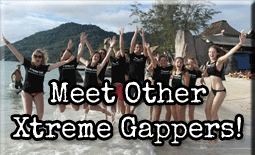If you are looking into the Australian Outback programme on how to become a cowboy you better start learning the Language!
This page contains a list of terms used commonly on Australian cattle stations. Sayings can vary from place to place and have originated from all over Australia.
A few Kangaroos loose in the top paddock – Someone who is mentally ‘not quite there”. Ie; A sandwich short of a picnic, lights are on but nobody is home, etc.
A over T – To fall over. “To fall arse over tits”.
Agro – The state of being angry and aggressive over a situation.
Akubra – Proprietary name for an Australian wide brimmed felt hat.
Back of Bourke – a long way away from wherever you are, specifically inland and away from civilisation.
Billy – a tin used over a campfire to boil water for tea.
Bingle – a car accident
Blowie – a blow fly – a large fly that lays maggots making meat rotten.
Bodgy (or Dodgy) – poor quality. “It’s a bit bodgy” – it might fall to bits.
Bush – has different meanings depending on where you are. If in town, “going to the bush” might mean heading out of town, or if in the city, going to a small country town. To people in city regions “the bush” could refer to the outback. When in the country, “going up the bush” could mean going to an area where there are lots of trees and wildlife, and “going bush” could mean going out where there are no other people, maybe to do fencing or go fishing. Going bush could also mean someone wanting to get away from other people.
Bush telegraph – the exchange of information by word of mouth. “I heard it on the bush telegraph”, just like “I heard it on the grapevine”.
Cheque in the boot – If a stockman woke in the morning to find a cheque in his boot, that meant he was sacked. No words were spoken; he just rolled his swag, caught his horse and rode off.
Chopper – Helicopter; usually used for mustering cattle.
Clean skin – an unbranded and un earmarked heifer, cow or bull.
Cockie – Farmer. Also slang for cockatoo and cockroach.
Cruisie – taking it easy, “A cruisie job” – an easy job or affirmative “Cruisie”- that will be fine, cool.
Cuppa – a cup of tea or coffee. “Lets have a cuppa” – to have a break for a cup of tea. See also smoko.
Dodgy (or Bodgy) – poor quality. “It’s a bit dodgy” – it might fall to bits.
Duffing – Stealing, e.g. cattle ‘duffing’ means cattle theft, usually with the brand altered
Fats – fat cattle ready to be sold for slaughter, can be either bullocks or cows.
Float – a word often used when outback people are ready to go somewhere, “Let’s float”, or have gone, “He’s floated”. They could be going out to the stock camp, going to a rodeo or changing jobs etc
Fresh horse – a horse that hasn’t been used for a while.
Green horse – a horse, broken in but with not much training or experience.
Have a blow – have a rest.
Hobble – To join the front legs of a horse with two straps and a swivel chain (usually at night) to stop them going too far from camp.
Horse plant (or just ‘plant’) – The group of work horses kept ready for work at any time; either hobbled (see previous entry) out at night or kept in a small paddock. The group of horses in use by the stock camp at any one time. See also “horse tailer” below.
Horse tailer – the person who looks after the plant horses (see previous entry) while mustering or droving. See also Tailing.
Humbug – an annoying person.
Humbugging – teasing, pestering.
Hung up – to come off a horse and have your foot caught in the stirrup iron (oxbow) and get dragged along.
Jackeroos and Jillaroos – Usually young station workers who in times past often lived and ate separately from station hands, but all worked together. Even though we still see ads for jackeroos and jillaroos, young people much prefer to be called ringers.
Killer – one of the stock to be slaughtered for eating on the property.
Knock it off – stop that nonsense, or to steal something.
Knock off – finish work for the day – “I’m going to knock off now”.
Lingo – Language.
Micky bull – a young bull, usually up to about 18 months of age, which should have been branded and castrated but has been missed in previous musters.
Mob – group of cattle, horses or sheep running or mustered together. Can also be a description of a family or station grouping, eg “the Finegan mob”.
Muster – round up sheep or cattle. Can be used both as a Noun – “this year’s muster”, or as a verb – “we’ll muster them in”.
No drama or No worries – forget about it (in forgiveness) or Yes, I’ll do it (it will be no problem). See also Too easy.
Offsider – assistant. Usually younger or less experienced.
Outback – originated in a time when closely settled regions were referred to as inside and the sparsely settled frontier country was referred to as outside. The word outside changed over time to outback. “The Outback” has now become a tourism catchphrase to describe the sparsely populated central, western and northern regions of Australia. It is not a specific place, more a description, a bit like calling Australia “Down Under”.
Overland trout – Goanna
Paddock – fenced area.
Reckon – “Do ya reckon?”- Do you think so? or “I reckon!”- I agree wholeheartedly, or “I reckon it will rain tonight” – I think it’s going to rain tonight.
Ringer – a male or female stock worker on an Australian cattle station, so named from rounding up mobs of cattle.
Rollie – a self rolled cigarette.
Roo – Slang for jackeroo or jilleroo. A term often used for a person who is inexperienced or meaning that the person is not very skilled. Also short for kangaroo.
Round / A round – Mustering all the cattle on the station; mostly done twice in each season in a first and second round.
Smoko – a break for a smoke or a cup of tea or coffee. See also Cuppa.
Stock Camp – The term ‘stock camp’ refers both to the group of workers who work with the cattle in what is known as ‘the stock camp’ and to the actual location on the cattle property where the workers camp out while mustering cattle.
Tailing – to contain a mob of cattle or horses while they graze, e.g.
tailing cows and calves – to mother up;
tailing the mob – they may have been in the yards and need a feed.
tailing the plant horses while mustering or droving.
tailing weaners (see “weaners” below) – to quieten, feed and educate them while they are adjusting to being taken from their mothers;
Too easy – similar to “No drama” or “No worries” – I’ll do it! No problem!
Town smokes (sometimes called “townies”) – tailor made cigarettes. Called town smokes because station workers would often only smoke them when in town as a bit of a luxury.
Tucker – food.
Weaners – young steers or heifers, usually six to eight months old, recently weaned from their mothers.
Yard – a structure used to hold and process cattle. See also “yarded” below.
Yarded – “the cattle have been yarded” – put in the yard (see previous entry).
So now you can sign up for the Learn to earn in the outback programme! Working in Australia!




